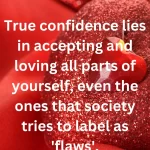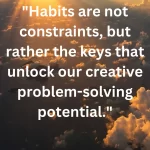Explore the enigma behind my true face, concealed from the world’s gaze. Peel back the layers and reveal the authentic me within.
Table of Contents
In a world dominated by screens and virtual identities, it seems that nobody truly knows who we are behind the carefully curated images and polished profiles.
We have become masters of disguise, hiding our true selves in the shadows of filters and flattering angles.
Faces once believed to be windows to one’s soul have now become mere masks, seamlessly altered with a swipe or two. It is an age where authenticity is scarce, where vulnerability is shunned as weakness.
Nobody has seen my true face, for I too am caught in this web of illusion and self-preservation. This is a reality story that unveils the struggle of unveiling oneself amidst the digital mask we wear daily.
The masks we wear in society
In a world where social media dominates our interactions, it has become easier than ever to portray a carefully curated image of ourselves.
We meticulously select the photos we post, filter out imperfections, and craft captions that reflect the life we want others to believe we lead.
It is no wonder then that many of us feel like nobody has truly seen our true face.
We have become experts at wearing masks in society, hiding behind these facades of perfection while suppressing our vulnerabilities and insecurities.
The pressure to conform to societal expectations further deepens the need for masks. We are constantly bombarded with images and narratives of success, beauty, and happiness.
As a result, we wear masks to fit into these molds, afraid that revealing our authentic selves may lead to judgment or rejection.
Whether it’s wearing a professional persona at work or projecting an idealized version of ourselves in social settings, these masks serve as shields against vulnerability.
However, by continually wearing these masks in society, we not only deceive others but also lose touch with who we truly are.
The fear of being judged prevents us from embracing our flaws and sharing our struggles with those around us who may be going through similar experiences.
Only when we shed these masks can we truly connect with others on a deeper level and find acceptance within ourselves.
It is time to break free from this cycle of deception and embrace authenticity in order to foster genuine connections and nurture personal growth.
The importance of authenticity
In a world where social media and online platforms dominate our lives, it has become increasingly difficult to separate the real from the virtual.
People often present themselves in carefully curated ways, filtering their lives to showcase only what they believe others want to see.
This constant need for validation and the fear of judgment has led many individuals to create an artificial persona, leaving their true selves unseen.
Authenticity is crucial because it allows us to connect on a deeper level with others.
When we are authentic, we show our vulnerability and true emotions, enabling genuine connections based on mutual understanding and empathy.
By embracing who we truly are, flaws and all, we invite others to do the same. It creates an environment where people can be honest without fear of judgment or rejection.
Moreover, authenticity is essential for our own personal growth and happiness.
Living authentically means living in alignment with our values and beliefs, which leads to a sense of fulfillment and contentment.
When we stop pretending to be someone we’re not or conforming to societal expectations, we free ourselves from the pressure of living up to unrealistic standards.
Authenticity allows us to live life on our terms rather than trying to fit into a mold that doesn’t align with our true selves.
To conclude, being authentic in a world full of filters and facades is more important than ever before. It not only fosters genuine connections but also enables personal growth and self-acceptance.
Society’s pressure to conform
In a world driven by social media and instant gratification, the pressure to conform to societal norms has never been stronger.
The constant need for validation and acceptance often leads individuals to hide their true selves behind carefully constructed masks.
In this digital age, people are more concerned with projecting an idealized version of themselves rather than embracing their flaws and unique characteristics.
This fear of judgment and rejection forces many to conform to popular trends, opinions, and lifestyles in order to fit in and avoid standing out.
The pressure to conform not only affects personal expression but also extends its grip on various aspects of life.
From career choices to personal relationships, society’s expectations influence every decision we make.
People often feel compelled to pursue conventional paths like studying subjects deemed prestigious or entering professions that promise financial stability, even if it goes against their true passions or talents.
Similarly, when it comes to romantic relationships or friendships, individuals may find themselves adhering to certain stereotypes or settling for less than they deserve just because it aligns with societal expectations.
This overwhelming pressure puts immense strain on individuals as they constantly strive for acceptance while sacrificing their authenticity.
The fear of being judged or ostracized prevents people from fully expressing themselves and embracing their unique qualities.
However, breaking free from society’s grip requires courage and self-acceptance – valuing one’s individuality over the fleeting approval of others is crucial for personal growth and genuine happiness.
The fear of judgment and rejection
The fear of judgment and rejection can be crippling, causing individuals to hide their true selves and wear masks in front of others.
This fear stems from the deep-rooted need for acceptance and validation. We may worry that if people see our flaws, quirks, or vulnerabilities, they will reject us or judge us harshly.
As a result, we put on a facade, presenting an edited version of ourselves that we believe will be more likable or socially acceptable.
Hiding behind this mask can lead to feelings of isolation and loneliness. When nobody has seen our true face, it becomes difficult to form authentic connections with others.
We may feel like imposters, constantly fearing that our true selves will be exposed and rejected by those around us.
This fear often holds us back from expressing our opinions, pursuing our passions, or taking risks for fear of being judged or rejected.
Furthermore, the fear of judgment and rejection restricts personal growth and self-expression.
When we are constantly worried about how others perceive us, we become afraid to step outside our comfort zones and explore new possibilities.
Our desire for approval becomes an invisible barrier preventing us from fully embracing who we are meant to be.
Overcoming this fear requires vulnerability – the courage to let go of the mask and show up as our authentic selves despite the potential risks involved.
The consequences of hiding our true selves
Living in a world where we constantly hide our true selves can have severe consequences on both an individual and societal level.
When we conceal our true identities, we deny ourselves the opportunity for genuine connections and relationships.
We become trapped in a cycle of superficial interactions, starving for authenticity but unable to break free from the persona we have created.
On an individual level, hiding our true selves can lead to feelings of isolation, loneliness, and even depression. It creates a sense of disconnection from others as we are constantly putting on masks to fit into societal norms or meet others’ expectations.
We may fear judgment or rejection if our authentic self is revealed, causing us to live in constant anxiety and stress.
Societally, when individuals hide their true selves, it perpetuates a culture of conformity rather than acceptance.
Authenticity breeds diversity and fosters innovation, but when everyone is busy pretending to be someone they’re not, unique perspectives and ideas are stifled.
This lack of genuine expression hinders personal growth and inhibits the potential for collective progress.
Ultimately, living behind masks prevents us from experiencing life fully and authentically. It restricts our ability to connect with others on a deep level and keeps us trapped in a cycle of pretense.
Only by embracing our true selves can we break free from these consequences and find fulfillment in being truly seen by others.
Embracing vulnerability and self-expression
In a world that often values perfection and conformity, embracing vulnerability and self-expression can be an act of rebellion.
Society teaches us to hide our flaws and weaknesses, to present a polished facade at all times. However, true connection and growth come from being open and authentic with ourselves and others.
By acknowledging our vulnerabilities, we create space for understanding, empathy, and genuine relationships.
Many of us wear masks as shields to protect ourselves from judgment or rejection. We fear that if people see the real us – our insecurities, fears, or imperfections – they will reject or criticize us.
But in reality, vulnerability can be incredibly powerful. When we allow ourselves to be vulnerable with others, we invite them into our inner world and foster deeper connections.
By sharing our struggles openly, we create an environment where others feel safe to do the same.
Self-expression is another crucial aspect of embracing vulnerability. Through self-expression – whether it’s through art forms like writing or painting or simply voicing our thoughts and feelings – we give voice to our innermost selves.
It allows us to communicate who we truly are without fear of judgment or rejection. Embracing self-expression is liberating; it frees us from the constraints of societal expectations and enables personal growth by encouraging exploration of different facets of ourselves.
In conclusion, embracing vulnerability and self-expression is essential for personal growth and meaningful connections with others.
Conclusion: Living authentically brings true happiness.
In a world where social media has become the norm, it’s easy to get caught up in portraying an idealized version of ourselves.
We carefully curate our online presence, filtering out imperfections and presenting only the best aspects of our lives.
However, this constant need for validation and acceptance leaves us feeling empty and disconnected from who we truly are.
Living authentically means embracing our flaws, quirks, and vulnerabilities. It means showing up as our genuine selves in every aspect of life – at work, in relationships, and within ourselves.
When we stop wearing masks and pretending to be someone we’re not, we open ourselves up to true happiness.
By living authentically, we invite genuine connections into our lives. People are drawn to authenticity because it is rare and refreshing in a world filled with facades.
When we are authentic, others feel safe to be their true selves around us as well. These deep connections bring fulfillment and joy that cannot be replicated through superficial interactions.
Moreover, living authentically allows us to align with our values and passions. Instead of chasing after society’s definition of success or trying to fit into societal molds that don’t resonate with us, we can focus on what truly matters to us personally.
This alignment brings a sense of purpose and fulfillment that surpasses any external validation or material gains.
In conclusion, living authentically is the key to unlocking true happiness.










